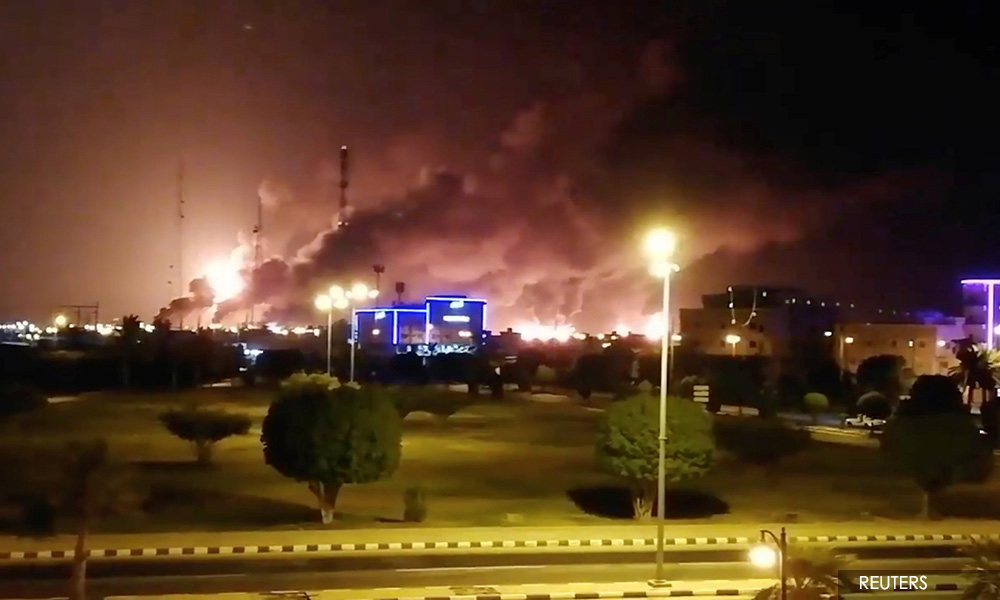Malaysia is one of the few Asian countries that will benefit from the spike in oil prices in the aftermath of the attack on Saudi Arabia's petroleum facilities that knocked out more than five percent of global supply over the weekend, say analysts.
Brent crude oil futures jumped as much as 18 percent on Monday after the Abqaiq facility and the Khurais oil field in Saudi Arabia were hit by a throng of explosive drones, for which Houthi rebels in Yemen claimed responsibility.
Bank Islam Malaysia Bhd chief economist Mohd Afzanizam Abdul Rashid said higher oil prices are a boon to the government, but it needs to strike the right balance on whether to spend for long-term investments such as development expenditure, or short-term remedies such as subsidies or cash transfers.
"We are not sure whether the prevailing oil prices can be sustained. The supply glut is still the main issue for the sector.
"According to the International Energy Agency, higher oil production from non-Opec countries will continue to post a challenge to the industry in 2020. Therefore, we are unsure whether the current oil price spike can last," he told Bernama.
On Monday, Finance Minister Lim Guan Eng said Petroliam Nasional Bhd's revenue and the government's fuel subsidy will increase after crude oil prices spiked following the incident in Saudi Arabia.
For the time being, the RON95 fuel price cap will remain at RM2.08 per litre, Lim said, adding the country's fuel subsidy will need an organised and detailed assessment for the long term.

Asia Pacific market strategist at AxiTrader, Stephen Innes recently said historically, oil price spikes driven by demand have been positive for equities in the Asia Pacific.
By contrast, oil price spikes on supply shortages tend to be less embraced, he added.
Innes pointed out that the most favourable investment sensitivity is in Malaysia since the country is a consistent net exporter of oil and gas, running a trade surplus of 2.7 percent of gross domestic product last year.
"Prices could remain elevated as repairs are performed, but unlikely to gap higher than May highs as Saudi Arabia will tap into reserves and tame the oil price. Also, there is a lot of reserves globally.
"But recall, Malaysia Budget 2019 was based on US$70 per barrel oil price, so this price shock is a most welcome boost to government coffers," he told Bernama.
Innes noted that the so-called supply and war risk premiums could keep prices higher, even after production is restored.
Meanwhile, RHB Research said oil-related revenue, which was estimated to contribute 30.9 percent to total government revenue this year, is expected to fall sharply in the absence of Petronas' RM30 billion special dividend and slightly lower crude oil prices.
"We believe a more conservative estimate of oil price at below US$60 per barrel for Brent crude is likely to be adopted by the government for 2020, versus the rather optimistic US$70 per barrel estimated in 2019.
"This comes even as recent geopolitical events resulting in global supply disruptions point to higher crude oil price in the near term," it said in a research note titled "Budget 2020 Preview: Shared Prosperity, Higher Fiscal Spending In Needy Times" today.
For now, RHB Research's house view expects a premium of US$3-US$10 per barrel to be added to crude oil prices over the near term, but maintains its crude oil forecast at US$66 per barrel for next year.
To recap, each US$1 increase in the oil price is estimated to improve government revenues by RM300 million.
- Bernama

